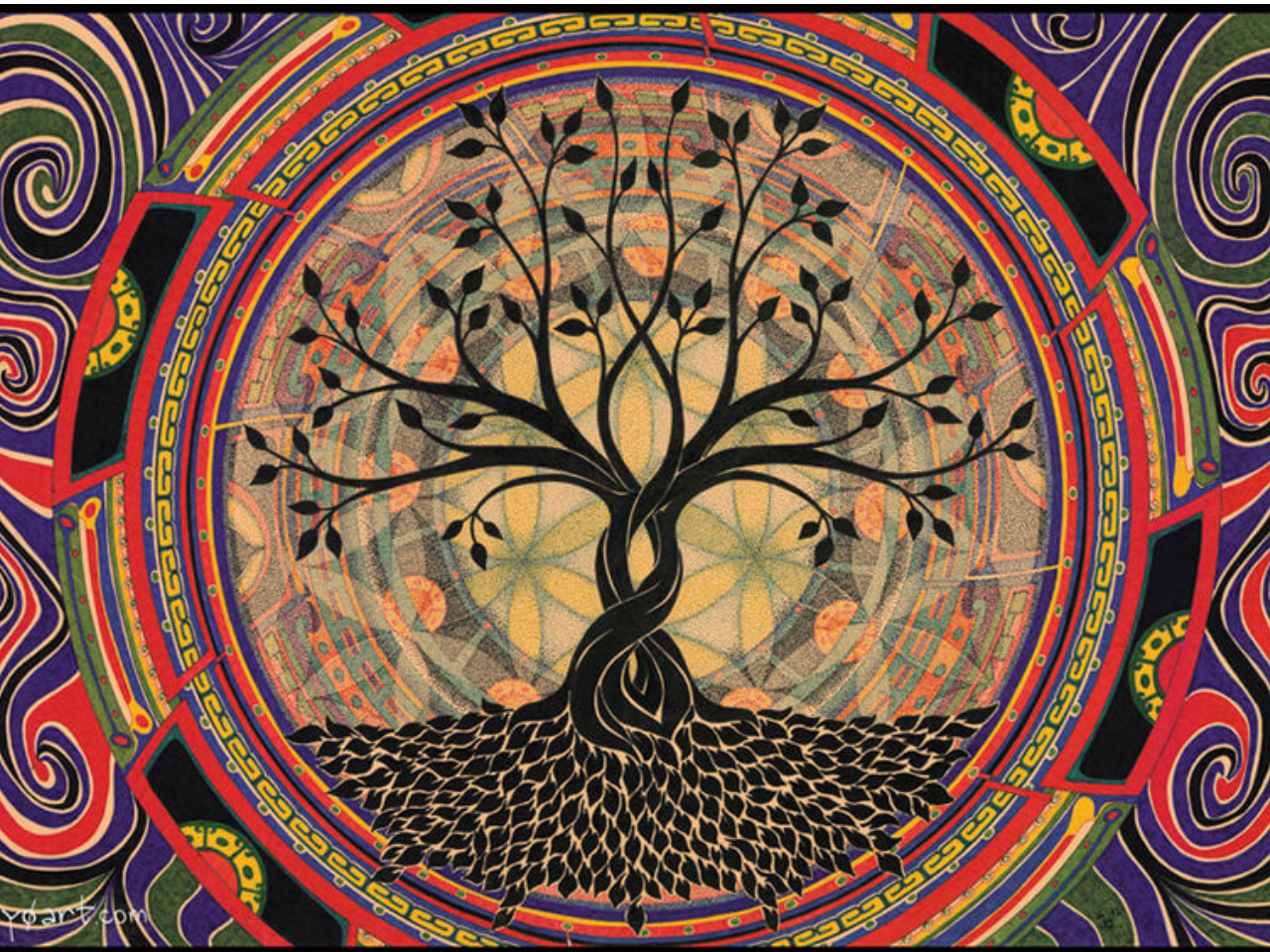Nicholas Bruno
Nightmares: Demons of the Night
Do demons of the night plague you?
Did you know that many nightmare themes are quite common worldwide? Betrayal, failure, illness and death, being trapped, being pursued, being lost, caught naked, falling — these are typical themes of nightmares.
Dreaming about death? Is there an aspect of yourself or an old part of your life that is ending to make room for a new beginning?
Naked in a dream? In your daily life, are you feeling particularly exposed, vulnerable or unprepared?
Trapped in a dream? Do you feel trapped in your waking life? Are you on the verge of a commitment and feeling anxious?
Being pursued in a dream? Experiment with mentally rehearsing your dream drama with a successful conclusion while you are still awake. This time imagine actually facing your pursuer. After all, it’s your dream, right? You are actually still awake and simply imagining this scenario so why not face your fears and dare to learn something? Ask your pursuer, “Who are you, anyway? And what do you want?” There is a reason you created this pursuer in your dream so ask them “What is your message for me?” Be open and trust your imagination to reveal something useful to you. Experimenting with this scenario while awake is a rehearsal for when you meet any pursuer when asleep and it is a way to build a bridge between you dream time and waking life. With practice, any dreamer can learn to decode the visual and symbolic language of a dream to understand the relationship between their dreams and daily life.
Everyone has “bad dreams” occasionally. What distinguishes bad dreams from nightmares is their intensity. In a bad dream you may feel embarrassed. But in a nightmare you may may feel horrified. For help with nightmares, see “13 Lucky Tips to Tame Your Nightmares” below.
Venice Photo by Hollye Hurst
What are the causes of nightmares?
The cause of nightmares depends on the individual and what is happening in their life but common culprits are stress, trauma, or medications and drugs that affect us mentally. If you suspect medications are the culprit give your prescribing doctor a call and ask for their feedback.
Consider your nightmare a message about the need to examine sources of stress in your life or to clear the impact of a past trauma. We commonly associate fear with both bad dreams and nightmares. Anxiety does drive a majority of nightmares and bad dreams. However a new study released by psychology researchers Geneviève Robert and Antonio Zadra at the University of Montreal revealed that among the 10,000 people they studied, about 35% of their nightmares and 50% of their bad dreams contained primary emotions other than fear such as sadness, confusion, guilt, anger, disgust - the usual human emotions we consider unpleasant.
So did the researchers find a common theme in nightmares and bad dreams? Zadra said that the most frequently reported themes involve physical aggression or interpersonal conflicts, such as one where the dreamer is having an intense argument or is being humiliated by either a co-worker or family member. Other common themes relate to failure, helplessness or health concerns such as being told that you or someone you care for will soon die. With practice, any dreamer can learn to decode the visual and symbolic language of their dream to see relationships between their dream scenarios and issues of concern in waking life such as facing vulnerability or a need to change.
While most dreams are visual, a kind of a “cinema of the mind,” Zadra says other senses can manifest themselves in nightmares and bad dreams. Dreams can be auditory in nature. For example we can hear people scream or talk to us, hear sirens wailing or a dog barking. On rare occasions Zadra said that we can also feel pain or feel the cold or warmth around us. Sometimes we can also taste or smell things in our dreams. Just like in our waking life, our senses speak to us in our dream life too.
Gare de Lyon by Florence Oliver
13 Lucky Tips to Tame Nightmares
1. Develop a regular sleep pattern. Your brain will thank you for this. And develop a relaxing sleep ritual. Try a warm bath, pleasant music, breathing meditation, or a relaxing body practice like yoga poses that support deep restorative sleep. For more about sleep, check out the post "How to Sleep Better" below and the video clip from composer Max Richter's "Sleep," a ground-breaking musical work he says is "an eight-hour lullaby for a frantic world” (see below).
2. Make sure your sleeping environment is uncluttered and comfortable. Cover light sources, particularly electronic ones.
3. Don’t go to sleep angry or stressed out. Give yourself some time to chill out. Don’t ruminate over the day. Remember that the chances are your problem will still be there for you to solve tomorrow after you are rested. Or better yet – maybe it won’t be. For now, let it go.
4. If plagued by nightmares don’t sleep on your back. This encourages a special kind of nightmare known as sleep paralysis, in which you feel like you are being held down and cannot move, perhaps by an “unknown presence” in the room. Definitely scary. Read about and see a brief video about Sleep Paralysis below.


5. Walk away from screens an hour or more before sleep. Our digital devices emit a higher concentration of blue light than we receive from natural light. Blue light affects levels of the sleep-inducing hormone melatonin more than any other wavelength. So dim the brightness of your devices as much as you can during the day.
6. Reduce exposure to violent images and media especially right before sleep.
7. To set your mind in a positive direction before sleep end your day recalling the gifts that have come your way. What are you thankful for? Even if you fear it may all go wrong tomorrow, what are you happy about right now?
8. Spend time enjoying the benefits of the natural world as often as possible. We all suffer from “nature deficiency disorder.” Research at Environmental Protection Agency indicates that the vast majority of Americans spend 95% of their time indoors.


9. Engage in a body-oriented relaxation practice like basic breathing relaxation, stretching, yoga, walking or Qigong.
10. If you have numerous, repetitive nightmares that are related to childhood memories or some personal trauma you’ve encountered, seek out professional support or at least the ear of a supportive person.
11. Journal about your dreams. This daily practice of self-reflection helps you understand how your dreams are relevant to your life right now. Dreams are helpful messengers from our unconscious that can illuminate aspects of our life we’re not offering attention to in the course of our busy days. Check out the Dream Discovery Workbook and Course.
Journals also provide a sense of containment for the disturbing images in nightmares, especially because you are writing them down when awake so not as captivated by them as when asleep. It is also helpful to imagine how you will face your fears if you have this nightmare again. It’s your dream, right? So you are in charge of it. Be imaginative. We can have superpowers in our dreams and in our waking imagination. So brandish your magic laser sword or get playful and seductive – whatever you like. Re-script your nightmare by imagining a more successful outcome for yourself. Before sleep re-imagine this positive outcome.
12. Draw or paint images from your nightmares. This can empower you with a sense of personal ownership of what you fear in your dream. You can take this a step further and burn the image or cut it into pieces. Or make friends with your fears by giving the image you create an honored spot in your home.
13. Share your dreams. Sharing a dream with a supportive friend, a professional or in a dream group is a way of making dream images more user friendly. Dream work is actually a treasure hunt where you can find the wisdom of your dreams, even nightmares.
Sleep Paralysis
Nightmares are one thing but being troubled by Sleep Paralysis is even more stressful. During sleep paralysis a person is essentially dreaming while awake and typically experiencing terrifying visual and auditory hallucinations. In this zone between being fully awake and asleep the individual is aroused to a conscious state while continuing to experience the physical immobility that is typical of the sleep state.
Best tips for coping with Sleep Paralysis? During an attack, staying calm is the most important thing to remember. Many people find it helpful to train themselves to mentally adopt the position of the observer, a third person stance, rather than allowing themselves to be emotionally carried away by the experience.
Also you can make the experience much less overwhelming if you concentrate on your body and relaxing your breathing. And rather than remaining completely still, a person can break the paralysis by concentrating on moving a small muscle, such as the toes or a finger.
Another strategy is to focus on details in the environment.
Some people can train themselves to vocalize noises during an attack which awakens them or their sleeping partner.
Check out this short video about Sleep Paralysis. "Devil in the Room" was a collaborative effort that involved a filmmaker, a psychology graduate student, a professor of paranormal psychology and a neuropsychologist. And be sure to check out "How to Sleep Better" below.
SLEEP: How to Sleep Better & What Happens When We Sleep
Marc Chagall's Song of Songs
Feeling fatigued? Forgetful?
Unfocused? Irritable?
Depressed? Overeating?
Dozing off (especially while driving!)?
Plagued with headaches? What about mysterious ailments that suggest an out-of-balance immune system?
You may be Sleep Deprived. If so, you have lots of company. The CDC reports one in three Americans, about eighty million, suffer from sleep deprivation. And it is not something you’re body “will get used to.” Enough sleep is essential for our physical and psychological health including a healthy immune system, regulation of blood pressure and stability of mood.
All animals sleep and they will die of sleep deprivation before starvation. So sleep is as essential for life as food.
Sleep experts recommend that adults get a minimum of seven and a half hours of sleep and even up to nine hours. Despite this fact current polls indicate that the vast majority of adults get less than seven hours of sleep a night. Children need far more sleep than this. Even through high school kids need up to ten hours of sleep a night.
Remember when your sleep experience felt like this puppy's? But now it's more like this?

Remember when your sleep experience felt like this?

And now it's more like this?
How to Sleep Better
Composer Max Richter created "Sleep," a ground-breaking musical work scored for piano, strings, electronics and vocals he says is "an eight-hour lullaby for a frantic world” (see video clip below). While you might not be able to control all the factors of our “frenetic world” that interfere with your sleep, you can adopt habits that support better sleep. Start with these simple tips:
1. Exercise daily. Vigorous exercise is best but even light exercise is better than no activity. Exercise at any time of day, but not at the expense of your sleep.
2. Avoid alcohol, cigarettes and heavy meals in the evening because they can disrupt sleep. Eating big or spicy meals can cause discomfort from indigestion that can make it difficult to sleep. If you can, avoid eating large meals for two to three hours before bedtime. If you’re still hungry, try a light snack at least an hour before bedtime.
3. Talk to your healthcare practitioner if you consistently have difficulty getting to sleep, staying asleep or wake up exhausted. You may have medical issues that are interfering with your sleep. Perhaps a sleep study would be helpful determine if you have a sleep disorder such as sleep apnea. Sleep disorders such as sleep apnea can wake you many times during the night, even if you do not remember waking up, and prevent you from sleeping soundly. Sleep apnea can cause serious health issues. If you have a sleep disorder it is important to address this and that the various strategies that are available to improve sleep.
To better understand sleep, you can learn below more about the "Stages of Sleep" and what happens when we sleep post below.
4. If you have trouble sleeping avoid naps especially in the afternoon. Power napping may help you get through the day but, if you find that you can’t fall asleep at bedtime, eliminating even short catnaps may help. If you choose to catnap, limit yourself to a maximum of thirty minutes daily and avoid doing so late in the day.
5. Develop a relaxing sleep ritual and regular sleep time. A set sleep schedule helps to regulate your body’s clock and could help you fall asleep and stay asleep for the night. Wind down your day with a warm bath, pleasant music, breathing meditation, or a relaxing body practice like yoga poses for sleep.
6. Don’t go to sleep angry or stressed out. Give yourself some time to chill out. If something worrisome is on your mind, jot it down and then set it aside for tomorrow. Don’t ruminate now because the chances are your problem will still be there tomorrow waiting to be solved after you have rested. Or better yet – it won’t be. So for now, let it go.


7. Walk away from screens an hour or more before sleep. Digital screen emit a higher concentration of blue light than we receive from natural light. This blue light affects levels of melatonin, the sleep-inducing hormone, more than any other wavelength. Dimming the brightness of your devices as much as you can is helpful.
8. Reduce exposure to violent images and other stimulating media especially right before sleep.
9. Make sure your sleeping environment is uncluttered and comfortable. Cover light sources. It is best to take work materials, computers and televisions out of the sleeping environment. Use your bed only for sleep and sex to strengthen the association between bed and sleep.


10. Spend time enjoying the relaxing benefits of the natural world as often as possible. We all are plagued with “nature deficiency disorder”and need to restore ourselves with relaxing time in nature.
11. If you’re having difficulty falling to sleep or have awakened and can’t get back to sleep soon, go into another room and do something relaxing until you feel tired.
12. To set your mind in a positive direction before sleep end your day recalling the gifts that have come your way. What are you thankful for? Even if you fear it may all be gone tomorrow, what are you happy about right now?
13. Engage in a body-oriented relaxation practice like basic breathing relaxation, stretching, yoga, walking or Qigong.
14. Try aromatherapy. Pick up an essential oil that is known for relaxing benefits such as lavender or chamomile, dilute with a vegetable oil such as almond, and apply just a bit topically to the soles of your feet or an even smaller amount on the tip of your nose.
The Stages of Sleep: What Happens When We Sleep?
Vincent Desiderio’s “Sleep”
The sleep cycle consists of two main parts: REM and Non-REM, with intermediary stages. Understanding the stages of the sleep cycle can help you understand how to time your sleep, how to achieve memorable and even lucid dreams, and even to know what stage of sleep you were in when you wake up unexpectedly.
Stage 1: The first stage of sleep is when you are drifting off. This stage may last several minutes but usually not longer than 15 minutes. If you are awakened during Stage 1, you may feel like you haven’t actually fallen asleep when in fact you have. It is common for people with insomnia to stay in Stage 1 for a very long time. Every time they awaken they feel like they haven’t slept yet, which causes frustration. This can make it very difficult to relax and fall into Stage 2, the more restful phase of sleep. Antidote? Have confidence that relaxation versus frustration will help you sleep.
Stage 2: This stage is characterized by light sleep that slowly moves to deeper sleep. As Stage 2 progresses your body will tense and relax intermittently and your breathing will become slow and deep. During this stage your body temperature will also decrease and, if you are not properly covered with blankets or if your room is too cold, you might wake up shivering.
Stage 3: This is the first stage of deep sleep. The brainwaves slow to the higher levels of Delta frequency and your brain prepares to enter Stage 4 which is the deepest sleep. It’s most difficult to wake up during stages 3 and 4 which are also the most restorative stages of sleep. This is when the body repairs muscles and tissues, stimulates growth and development, boosts immune function and builds up energy for the next day.
Stage 4: This is the second level of deep sleep, the last level of non-REM sleep before you begin to dream. Stage 4 is the deepest level of sleep and similar to being in a coma. In this stage your brain is producing the lower levels of Delta frequency brainwaves. If you are awakened during Stage 4, you are likely to feel disoriented and perhaps not know where you are.
We experience “a good night sleep” if we get at least seven and a half hours sleep and particularly enough restorative deep sleep. The longest periods of deep sleep are potentially early in the night when the REM period is short. In the morning your deep sleep periods get shorter and your REM sleep periods get longer. If you’re not getting enough sleep you’ll not only feel fatigued, you may have difficulty remembering your dreams because dreams mostly occur during REM.
If this is true for you, try some of the sleep tips above. And perhaps listen to composer Max Richter’s “Sleep,” a brilliant lullaby for a frenetic world."
REM Sleep: REM sleep occurs last in the sleep cycle. You generally enter REM sleep about ninety minutes after initially falling asleep and each REM stage can last up to an hour. An average adult has five to six REM cycles each night. After a certain amount of time in REM sleep, you will move back to stage 1 and essentially begin the sleep cycle again.
REM stands for “Rapid Eye Movement.” REM sleep is characterized by paralysis in your major voluntary muscle groups but quick movement in your eyes. Heart rate and blood pressure increase and breathing becomes fast, irregular, and shallow. The limbic system, associated with sexual impulses and our emotional life, is in the driver’s seat during REM.
During this final phase of sleep, your brain waves are faster – similar to the brain wave patterns of waking consciousness. REM sleep plays an important role in learning and memory function, since this is when your brain consolidates and processes information from the day before so that it can be stored in your long-term memory. When we’re awake we’re recording our experiences. When we sleep we’re in editing mode. REM sleep is associated with dreaming.
If you're not getting enough sleep experiment with some of the tips above and perhaps as you nod off enjoy Richter's “lullaby for a frenetic world. A manifesto for a slower pace of existence.”
Dream Discovery™ All Rights Reserved









